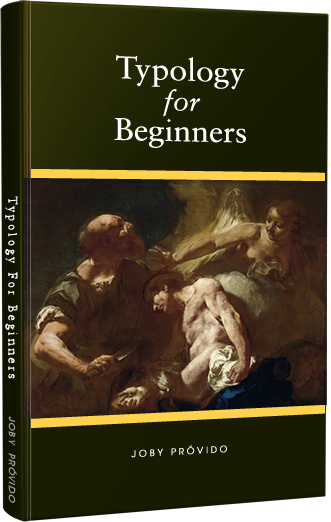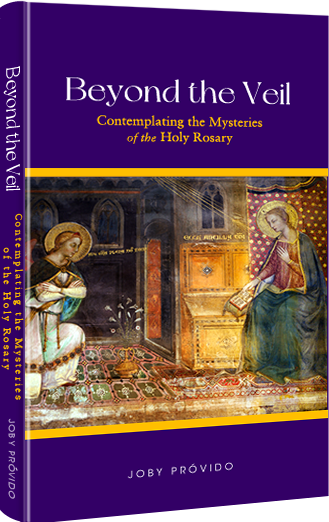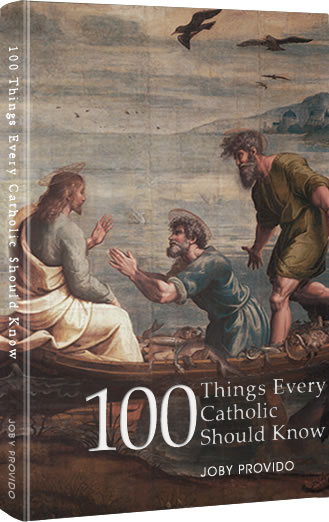Mental Prayer — Part 1 of 2: Why we need it
A Christian is defined not as someone who observes God’s commandments and adheres to religious norms and practices, although it may entail that. However, that is a vague description because other religions do the same. Instead, a Christian is someone who has a healthy relationship with Christ.
What does that mean to have a healthy relationship with Christ? Imagine you have a good friend to whom you can just blurt out with abandon whatever is in your heart without fear of being judged. Imagine that you reciprocate by also listening intently when this friend has something to say to you. You spend time with each other often whether it playing golf, eating out, or just simply having a conversation over coffee. That is the kind of relationship we want with Christ. But such a relationship doesn’t happen on its own. It needs to be cultivated through three ways.
Honest talking
A good friend cannot know us completely if we are not honest. So it is only to a close friend we confide the most shameful things we’ve done, or crack the most revolting jokes, or reveal our most personal secrets. It is only to an intimate friend we go for help for the most embarrassing request. Only by completely exposing ourselves slowly will we feel at ease with our friend in the long run. No deep friendship is made by small-talk; that will always end up as an acquaintance instead of a friendship.
Opening up is not easy to someone new at first because we always fear being ridiculed. We always fear that the cogs in our friend’s head are spinning some sort of judgment on what we divulge. However, we can’t get to a level of friendship if we don’t risk it. Someone worth being a friend will accept you for who you are. They may not necessarily condone what you’ve done, but they will certainly accept you.
Intent listening
Trust ensues when after you tell your friend something personal and your friend repays the favor by revealing something as personal. By telling each other something that came from your hearts, you’ve made a bond. However, this can’t ever happen if you are the only one doing the talking. You must keep quiet at some point and give your friend a chance to talk. If you do all the talking, the encounter with your friend will not be a dialogue but an address – and that certainly is one-sided as you would not have learned anything new about your friend.
Frequent encounters
We’ve all had this close friend in elementary with whom we spent so much time in laughter, tears, eating, playing, and getting caught by the principal for doing mischievous things. You thought you would be friends forever but as the years went by you lost touch, and now he or she is but a dim memory. This happened because you did not get together more often. No judgment there: it’s just the sad truth about every relationship that fades away.
There is such a stark contrast between friends that meet often and those that meet once a year. It is the frequency in meeting with the people that fans the flames of our friendship with them. By“living" with your friend you begin to know your friend in a more intimate way. You just don’t know ABOUT your friend – as if it were information you get from Facebook, Linked In, or Instagram – but you actually get to KNOW your friend. There is a big difference.
So how does mental prayer fit into this? Mental Prayer is the way to accomplish all three: honest talking, intent listening, and frequent encounter. We need to be able to tell Christ what it is we feel deep in our hearts. We must be able to listen to what he says to us too. And we must spend frequent time with him. The Catechism tells us that we must live with a vital relationship with the living and true God – and that relationship is prayer (CCC 2558).
There are three forms of prayer: vocal, mental, and contemplation.
Vocal prayer is when we use words to communicate to God. The Our Father is vocal prayer for example, so is the spontaneous or formulated prayers we say when we bless our food before meals.
Mental prayer is when we use our minds to try and understand what God is trying to tell us. We usually use scripture, or an image, or a song – or even looking at a beautiful sunset – as a catalyst. While vocal prayer is communication directed to God, in Mental Prayer we seek what God is trying to communicate to us.
Contemplative prayer is when God’s lifts up and wraps a person in an intimate“hug" with him. Usually no words are used; instead, you are allowed to bask in his divine light. Sometimes one experiences extreme joy being in the presence of God, while sometimes there is no feeling at all. We cannot create it. We cannot control its length. It is a gift. Vocal and Mental prayer usually paves way to contemplation.
It would be difficult to rank which of the three is best because prayer is prayer regardless of the form. However, it can be said that Mental Prayer is the one that normally develops a relationship with Christ because we speak to him, listen to him, and spend time with. If a Christian is someone who has an intimate relationship with Christ, we can see why Mental Prayer is important for it develops that relationship. It is a valuable tool we can’t ignore so in the next installment of this series we will explain how to do Mental Prayer.
Next Article: How to do Mental Prayer

Typology for Beginners
A Catholic Perspective on understanding the New Testament through the Old Testament
First-century Jews converted to Christianity in droves because of the way the New Testament was written to show Jesus was the Messiah promised by the Old Testament. We also learn about how Mary is the New Eve and the Ark of the Covenant in the way the writers portray her.
Through typology, the patterns that connect the Old and New Testaments make the Bible stories more accessible so that one becomes excited to read Sacred Scripture again.
Get your copy now either in Hardbound, Paperback, or Kindle

Beyond the Veil
Contemplating the Mysteries of the Holy Rosary
Prayer giants like Pope St. John Paul II, Pope Paul VI, Bl. Archbishop Fulton Sheen, and Bishop Robert Baron advocate that we contemplate on the mysteries of the rosary while we say the vocal prayers. Unfortunately, there are not many books that teach us how to do this. Beyond the Veil comes to the rescue by suggesting seven ways we can pray the rosary the way it was intended.
The larger part of the book offers mental images for each of the mysteries we can use in our contemplation, for how can we imagine the scenes in the rosary if we don't know about them?
Get your copy now either in Hardbound, Paperback, or Kindle

100 Things Every Catholic Should Know
Whether or not you are new to the Catholic Church, or struggling, or lapsed, or dynamically involved, this book will enlighten you with the essentials of the Faith that have been handed down to us by the apostles.
Each of the 100 topics is easy to read and distilled into bite-sized portions. Through cross-referencing, the book also shows how the topics are interrelated. Those who are new to the Faith will find this book an edifying handy reference, and those who have simply forgotten will find it a great review material that might spark a new love for God and religion.
Get your copy now either in Hardbound, Paperback, or Kindle

A Sky Full of Stars
Know Our Lady through her Titles in the Litany
The Church helps us understand who Mary is by honoring her with different titles in the Litany of the Blessed Virgin Mary. Unfortunately, over time and difference of culture, we might not grasp what it is the Church is ascribing to her and lose that opportinity to get to know her.
In A Sky Full of Stars, each title of the Litany is explained so we get know Mary more and fall in love with her all over again.
Get your copy now either in Hardbound, Paperback, or Kindle



























